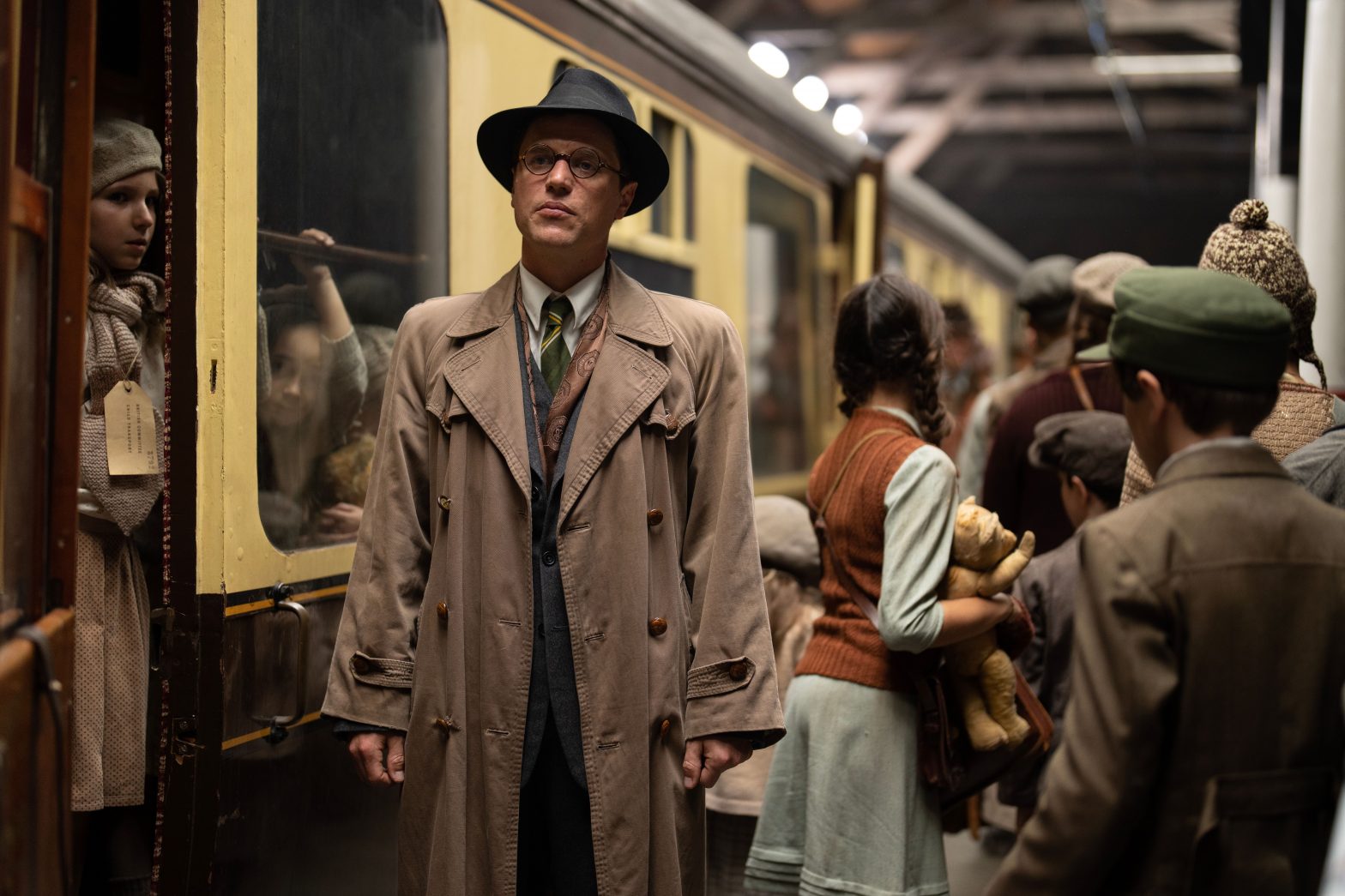The biopic about British humanitarian Sir Nicholas Winton (1909-2015) is presented by TV director James Hawes (“Black Mirror”), who makes his feature film debut. The script is based on the book “If It’s Not Impossible” by Barbara Winton, Lucinda Coxon (The Danish Girl), and Nick Drake (Making Noise Quietly). The audience will see Winton’s life reflecting on when he was a young stockbroker in the late 1930s, portrayed by Johnny Flynn, and the elder Winton in the 1980s, portrayed by Anthony Hopkins. I viewed the trailer for this film a couple of months before the film’s release. I instantly knew that it was a film that contained a significant story that may have yet to be widely known, despite the media coverage in the 80s or upon his daughter’s book release. I highly encourage viewing the film.
People sometimes wonder if any individual can make a difference. This film shows this 29-year-old’s determination to help children at a time (late 1938) when he saw them suffering alongside their families (and) strangers as refugees in Prague. They had fled from other countries. His belief system was to not give up on things that may not be impossible, along with the family values instilled by his mother, Babette Winton (Helena Bonham Carter). There is one scene where she is explaining her and her family’s history, including that of her deceased British husband and sons born there. She is excellent.
“Nicky,” as his family knew him, launched an effort to rescue children through the British Committee for Refugees in Czechoslovakia. There were many challenges and steps to take before taking the children out of the country, especially those that may be facing deportation. WW II was not declared until Sept. 1, 1939. The film reenacts what it took to transport children eight times before that date successfully. The audience views what happens to the ninth train loaded with children. This scene is just crushing to the soul. The children were successfully transported to Great Britain and lived with foster families who agreed to have them.
The very modest Winton did not want the limelight and did not work alone. The evacuation transports and family placements were done by two others through the British Committee for Refugees in Czechoslovakia (as well as other volunteers). Doreen Warriner (Romola Garai) headed the British Committee for Refugees from Czechoslovakia in Prague, and Trevor Chadwick (Alex Sharp) worked alongside her. Working on the ground in the Czech capital was challenging and more dangerous than not. Winton organizes and raises money from the UK, with infinite help from his mother, Babette, a German-Jewish migrant who converted to the Church of England when she married Nick’s father. Her talent shines when she is in an English bureaucrat’s office.
Nick’s wife, Grete (Lena Olin), is shown as flustered with his office, with the amount of documentation in boxes and a specific briefcase. Almost an octogenarian, Winton decides to review and purge items but has not told the family of his actions in the late 1930s. He finds the right place to store and share a specific scrapbook of his history. He meets his old friend Martin (Jonathan Pryce), who is instrumental in informing Nick about the situation in Prague. This meeting set things in motion in the 1980s so the public could learn about the quietly held secret of Winton’s work. There is a re-creation of an episode of a British TV program, “That’s Life!” that will undoubtedly prove moving to audience members.
Crew: Camera: Zac Nicholson. Editor: Lucia Zucchetti. Music: Volker Bertelmann.
Running time: 110 minutes with English, Czech, and German dialogue.
In select Austin theaters and others nationwide.
Source: Bleecker Street
